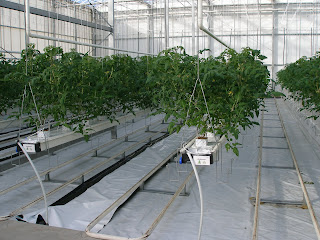The seminar featured industry identity Hans van Herk, who is a crop technical advisor with Grodan, who gave a highly informative address to a variety of industry members that included representatives from Boomaroo, Chisholm Institute, Duralite, Flavorite, Gippsland Glasshouse Growers, Grodan, Moriatis, Protected Cropping Australia, Trandos Hydroponic Growers, and Withcott Seedlings.
Hans van Herk
Within his presentation Hans covered a variety of topics that included the technical aspects of propagation plug and block options, seed sowing and germination improvement techniques, and plant grafting, and general growing techniques that can be utilised for precision growing.
Also on hand to provide advice was Grodan's Andy Lee, who is currently over from the United Kingdom. Andy was able to complement Hans presentation, a fact which made the session even more beneficial for the participants.
Further grower seminars are planned for 2012, and we will keep you posted when these are happening.
















